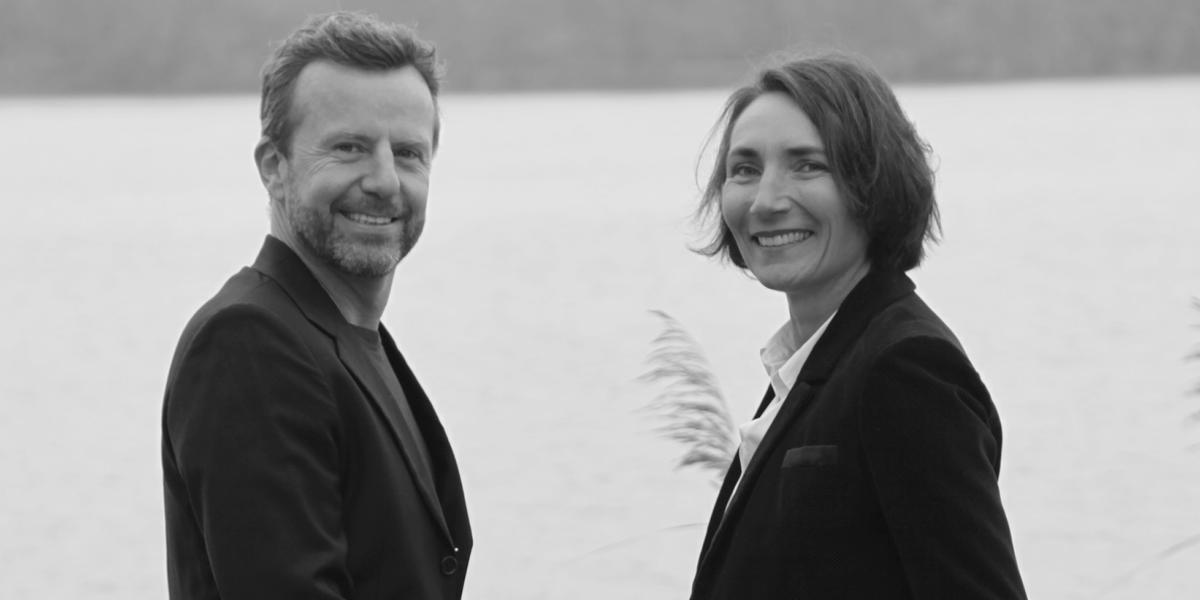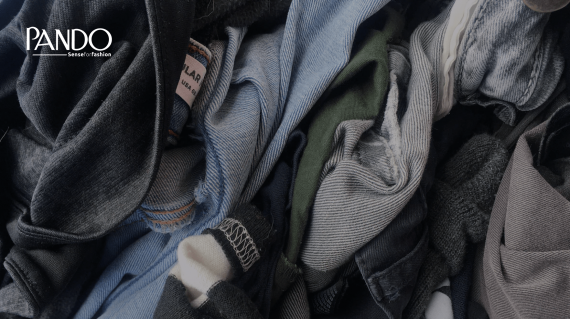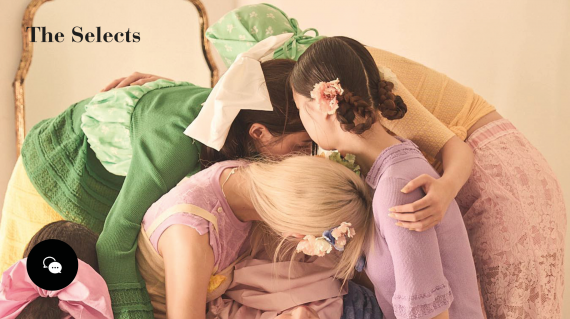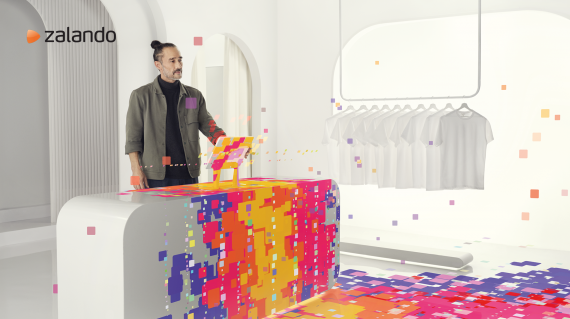08/12/2021
Industry
Since June 2020, the eco-responsible fashion consultancy Pando has been guiding us in our reflection on the consequences of the fashion industry on the environment and society, and particularly on the impact that LE NEW BLACK has as a company and as a digital platform, as well as the role we have to play with regard to our 400 clients.
We spoke to Laëtitia Hugé, co-founder of Pando. Laëtitia has a background in the retail and fast fashion industry in Bangladesh and Europe. She trained with AFNOR on ISO 26000, the international standard for CSR (Corporate Social Responsibility), sustainable development and sourcing at the textile importer JL International. Laëtitia then joined Lectra in search of innovation and process optimization. Following her meeting with Stéphane Piot in 2015, the duo launched Pando.
LE NEW BLACK: Hello Laëtitia, can you tell us more about the role and mission of Pando?
Laëtitia Hugé: Hi Julie, thank you for this interview and the interest in Pando! Pando is an eco-responsible fashion consultancy. We help fashion professionals, whether they are brands, manufacturers or retailers, to implement and develop their Corporate Social Responsibility (CSR) strategy. Our mission is to give meaning to fashion through our three values of optimism, respect and transmission.
LE NEW BLACK: In your experience, what are the expectations of B2B buyers today?
LH: Expectations have changed a lot in recent years. B2B buyers are driven, or even pushed, by the market, legislation and the consumer, which are all quickly evolving and demanding strong commitments from fashion companies. B2B buyers are looking for desirable brands that can also demonstrate a benefit to society. This can mean fighting for inclusion, diversity or ethics in their relationships with partners.
Beyond this societal aspect, B2B buyers are increasingly looking for eco-friendly products to meet the demands of B2C consumers and the market. This notion of eco-responsible products is very vague today, with almost as many brands as there are definitions! There is a need for B2B buyers to rely on labels, certifications and standards to prove this notion. So I think that B2B buyers are waiting for desirable, committed brands that can demonstrate their approach!

Laëtitia Hugé and Stéphane Piot, co-founders of Pando / Aurejade Photo
LE NEW BLACK: What advice would you give to a fashion brand wishing to embark on this CSR approach today?
To meet these expectations of buyers and the market, it is in a fashion brand's interest to launch a CSR approach in a structured and methodical way. Our clients often do things in terms of CSR in a "sprinkling" mode without any strategy or clear roadmap, which makes communication around the approach difficult or risky. The first thing to do is to use recognised benchmarks such as the ISO 26000 standard and the Sustainable Development Goals (find out more) to identify and, above all, to structure existing CSR actions within the company.
In parallel, an analysis of the key social, societal, economic and ecological issues of the brand must be carried out in order to define and refine the company's CSR strategy, its roadmap for the short, medium and long term, and then to develop the resulting operational action plan. CSR requires structure, method and time. There is no point in going off in all directions and at full speed, as the risk is to exhaust one's teams and above all not to address the priority issues. You have to go step by step according to your financial and human resources capacities. This is a very virtuous process of continuous improvement that is very unifying for the teams and external partners.
Would you like to make an assessment of your CSR strategy? Take the test!
LE NEW BLACK: Do you have a project in mind for the coming months?
LH: Absolutely! We are working on a CSR toolbox in response to the problems we have observed in our daily work with our clients. We have noticed that most of them have been asking about CSR and eco-responsible fashion and report that they have been overwhelmed with information without being able to sort out the real from the false, the important from the anecdotal.
Also, during our support, which can last several months, we observe that the teams move around a lot with the arrival of new employees, which increases the time needed to learn about the company's CSR. Therefore, it is necessary to repeat training sessions for the new teams, which is costly and time-consuming. The teams in place also need follow-up, particularly on content, as it is difficult to retain so much information at once.
To address these issues, we are launching a CSR toolkit dedicated to fashion and accessible online by subscription at the end of January 2022. This very operational toolbox contains training courses as well as various and synthetic contents on the core subjects of CSR in fashion such as labels, materials, legislation, etc. We have created a wide variety of content: there are videos, podcasts, webinars, but also checklists and handbooks, always focused on fashion and CSR.
We will take advantage of the Who's Next trade show at the end of January to launch this new Pando offer, but some of this content is already available for free on our site!



